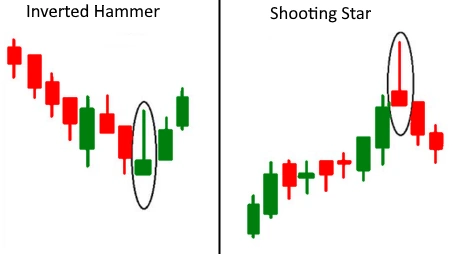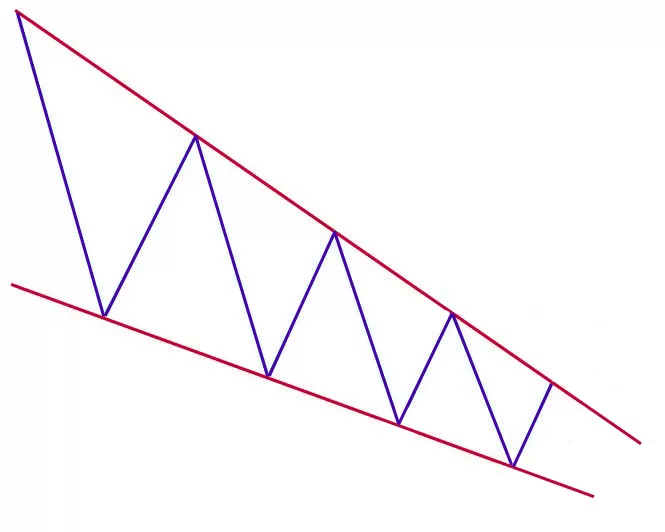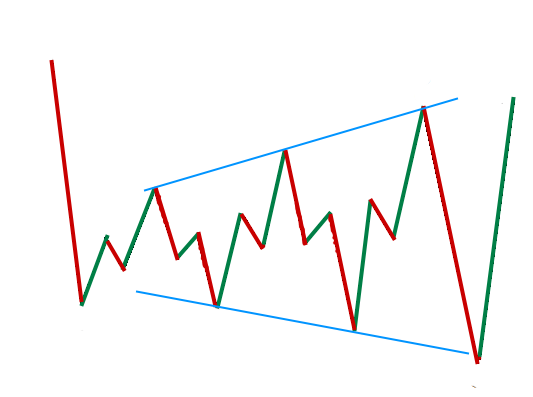In forex trading, the inverted hammer candlestick pattern holds significant importance. This specific pattern can act as a beacon, indicating potential price reversals. Let’s dissect this pattern to understand its formation, interpretation, and application in trading scenarios.
What is an Inverted Hammer Candlestick?
The inverted hammer candlestick is a single candlestick pattern that typically appears at the nadir of downtrends. It is an early warning signal of a potential bullish reversal, hinting at a shift from a bearish to a bullish market scenario.
Note: The subsequent trading day after the formation of an inverted hammer is crucial. It provides traders a clue about future price movements — whether they’ll escalate or deflate.
In the arena of technical analysis, an inverted hammer pattern is generally considered a bullish signal. However, it merely acts as an alert of a possible price change and should not be interpreted as an independent buy signal.
Anatomy of the Inverted Hammer
The formation of an inverted hammer involves an almost identical opening, closing, and low price. Furthermore, it features a long upper shadow, often twice as long as the real body of the candlestick.
When the opening and low prices coincide, the inverted hammer exhibits a bullish, green color. Conversely, when the low and closing prices match, the pattern takes on a red hue, indicating a less strong bullish signal.
The Implication of the Inverted Hammer Pattern
The appearance of an inverted hammer implies that the price was driven upwards during the day but met with resistance, causing it to fall and close near the opening price. This pattern shows the struggle between bulls and bears in the market, with the bulls trying to drive prices up and the bears resisting this upward movement.
To validate the bullish signal of an inverted hammer, traders often look for a higher open and close in the subsequent trading period.
Is an Inverted Hammer Bullish or Bearish?
After a long downtrend, the inverted hammer is considered bullish. This is because, during the day, the prices hesitated to continue their downward trajectory, and the bulls began testing the bears’ strength.
Remember: The color of the inverted hammer — green or red — also plays a role in its interpretation. A green inverted hammer is considered a stronger bullish sign than a red one.
How to Use the Inverted Hammer Pattern
Despite its bullish implications, the inverted hammer pattern should not be viewed in isolation. Traders need to corroborate their signals with other technical indicators or formations.
For instance, the confirmation of the bullish reversal could come from a subsequent green candle or the breaking of a downward trendline resistance. These indications can potentially trigger a buy signal.
Trading with the Inverted Hammer Candlestick Pattern
The inverted hammer pattern provides a warning of a potential price change but is not a standalone buy signal. When planning to trade based on this pattern, be sure to look for additional signals that confirm a possible reversal.
If the market confirms the bullish reversal, traders can go long. Conversely, if the pattern’s signal appears weak and the market seems likely to continue its downtrend, traders can opt to go short.
Inverted Hammer vs. Shooting Star
Although the inverted hammer and shooting star patterns look identical in isolation, their occurrence in different market trends sets them apart. The shooting star appears at the peak of an uptrend and signals a potential bearish reversal, whereas the inverted hammer occurs at the bottom of a downtrend, signaling a potential bullish reversal.
FAQs
Is the inverted hammer candlestick pattern bullish or bearish?
The inverted hammer candlestick pattern is generally considered bullish, especially when it appears after a long downtrend.
How do I use the inverted hammer pattern for trading?
The inverted hammer pattern should not be used in isolation. Traders should look for additional signals or technical indicators to confirm the potential bullish reversal before making a trade.
Are the hanging man and inverted hammer patterns the same?
No, despite their similar structures, the hanging man and inverted hammer patterns have different implications. The hanging man occurs at the top of an uptrend and signals a potential bearish reversal, while the inverted hammer appears at the bottom of a downtrend, indicating a potential bullish reversal.
Conclusion
The inverted hammer candlestick pattern is a powerful tool in the hands of savvy traders. Its appearance can signal a potential bullish market reversal, providing an opportunity to capitalize on future price increases. However, traders should always corroborate this pattern’s signals with other technical indicators or formations before making a trading decision.
Understanding and effectively using the inverted hammer pattern, along with other candlestick patterns and technical analysis tools, can significantly enhance your trading strategy and potential profitability in the dynamic world of trading.
Are you Ready to put your trading skills to use?
Get funded with Funding Pips and enjoy exclusive offers
- 8 Best Prop Firms USA: Real trader Reviews and Payouts - March 10, 2025
- Forex Trading in Uganda: Start With $10—An Incredible Opportunity on a Tight Budget! - February 24, 2025
- Master Forex Trading Algorithms: Your Path to Success in 2025 - February 17, 2025






